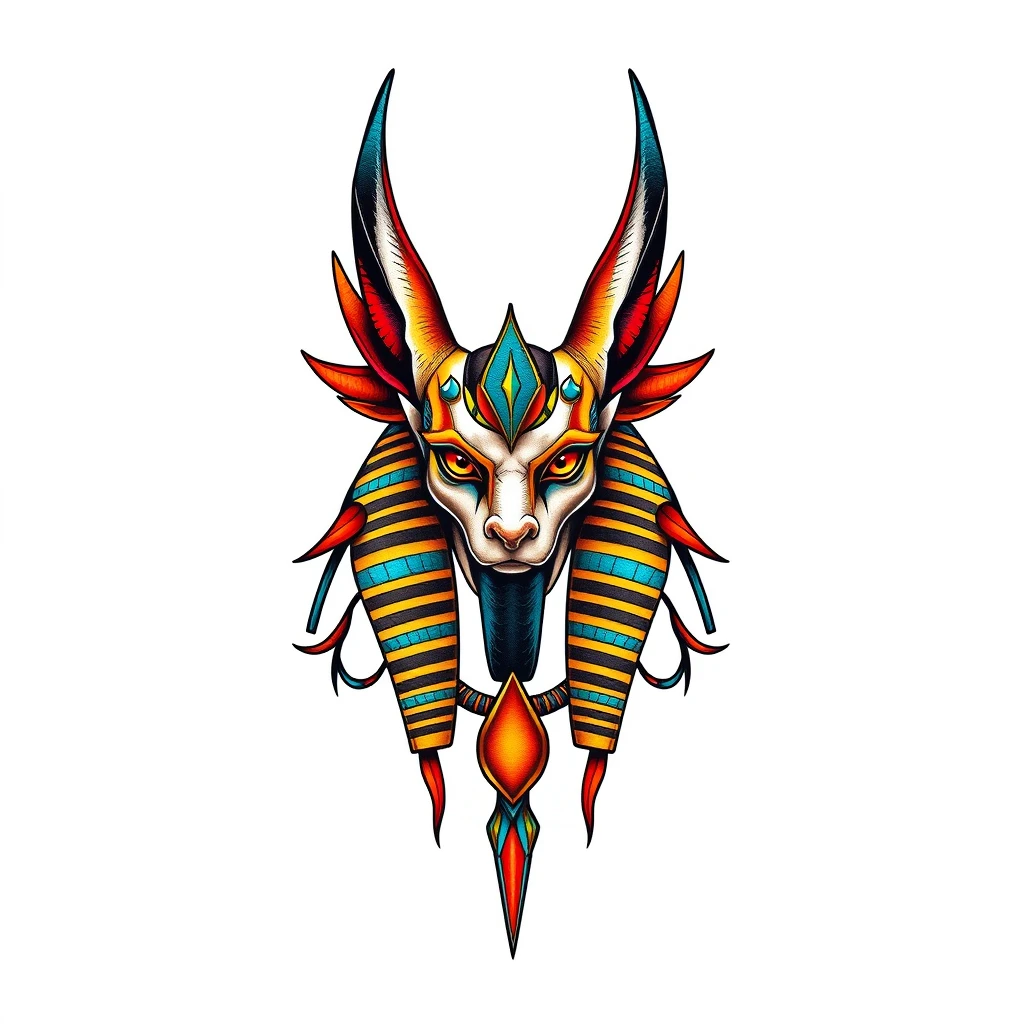Anubis, the ancient Egyptian god associated with mummification and the afterlife, is often depicted as a canine or a human figure with the head of a jackal. Anubis symbolizes protection, guidance, and the weighing of the heart in the judgment of the deceased. Tattoos of Anubis can represent various meanings, including a connection to one's lineage, a tribute to the afterlife, or a desire for protection and guidance in one's journey through life.
Symbolism of Anubis Tattoos
Guardian of the Afterlife
One of the most significant symbols associated with Anubis is his role as the guardian of the afterlife. Tattoos featuring Anubis often embody the idea of protection for the soul during its transition to the afterlife. This symbolism resonates with those who seek comfort in their mortality or wish to pay homage to loved ones who have passed away.
Balance and Judgment
Anubis was known for weighing the hearts of the deceased against the feather of Ma'at, the goddess of truth and justice. This act symbolizes the importance of living a righteous life. Anubis tattoos can serve as a reminder to maintain moral integrity and strive for balance in one's life decisions, encouraging individuals to reflect on their actions.
Transformation and Change
The mythology surrounding Anubis also represents transformation and change, particularly in the context of rebirth. Anubis tattoos can signify personal growth or significant life changes, marking an individual's journey through challenges and their evolving identity.
Spiritual Guidance
Finally, many choose Anubis tattoos as symbols of spiritual guidance. As a protector and guide, Anubis can symbolize an individual's search for spiritual enlightenment and support in navigating life's uncertainties.
Cultural Significance
In the context of various cultures, Anubis is interpreted differently, representing universal themes of death, transformation, and spirituality. Here are a few cultural interpretations:
- In ancient Egyptian culture, Anubis was revered as a key deity in funerary practices.
- Modern spiritual interpretations often view Anubis as a guide for inner exploration and self-discovery.
- In art and literature, Anubis represents the crossing between life and death, encapsulating the mysteries of mortality.
Popular Anubis Tattoo Designs
- Classic Anubis Portrait: A traditional representation of Anubis, showcasing his jackal head, often accompanied by symbols like the ankh.
- Anubis with the Weighing Scales: This design illustrates the scene of the weighing of the heart against the feather, symbolizing judgment.
- Hieroglyphics with Anubis: Incorporates Egyptian hieroglyphs alongside Anubis, creating a fusion of ancient culture and meaning.
- Abstract Anubis: A modern take featuring stylized versions of Anubis that emphasize artistic expression over traditional representation.
- Anubis and the Night Sky: A design that includes celestial elements like stars and moons, representing the connection between life, death, and the universe.
Ultimately, the meaning of Anubis tattoos can vary greatly from person to person, reflecting their unique interpretations and experiences. Whether seen as symbols of protection, guidance, or transformation, these tattoos carry personal significance that transcends mere aesthetics.

